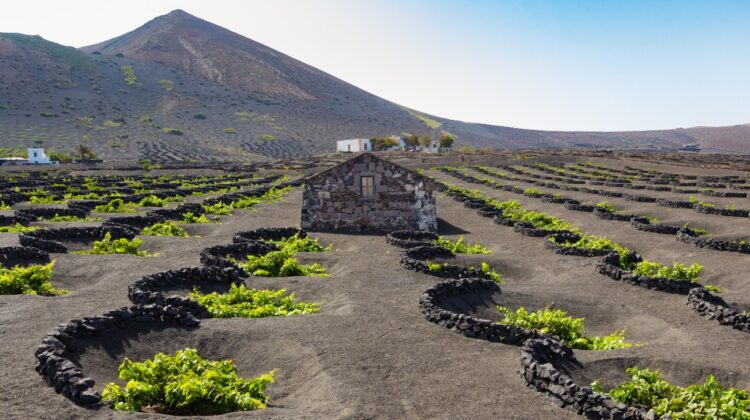
In the easternmost corner of the Spanish Canary Islands, bathed in the hot breath of the Sahara Desert and kissed by the currents of northern Africa, lies a land forged in fire – Lanzarote. Volcanic eruptions 15 million years ago birthed this dramatic island, leaving behind a stark landscape of solidified lava flows, volcanic ash fields, and black, wind-sculpted sand. Rainfall is a fleeting visitor, gracing the island for a mere 16 days a year, and temperatures on the scorched plains can soar to a blistering 50°C (120°F).

Yet, amidst this seemingly unforgiving environment, a different story unfolds. Lanzarote, against all odds, boasts a thriving wine industry, producing between 400,000 and 600,000 bottles annually. The island’s winemakers, renowned for their tireless work ethic and innovative spirit, have been cultivating grapes in this harsh landscape for centuries.
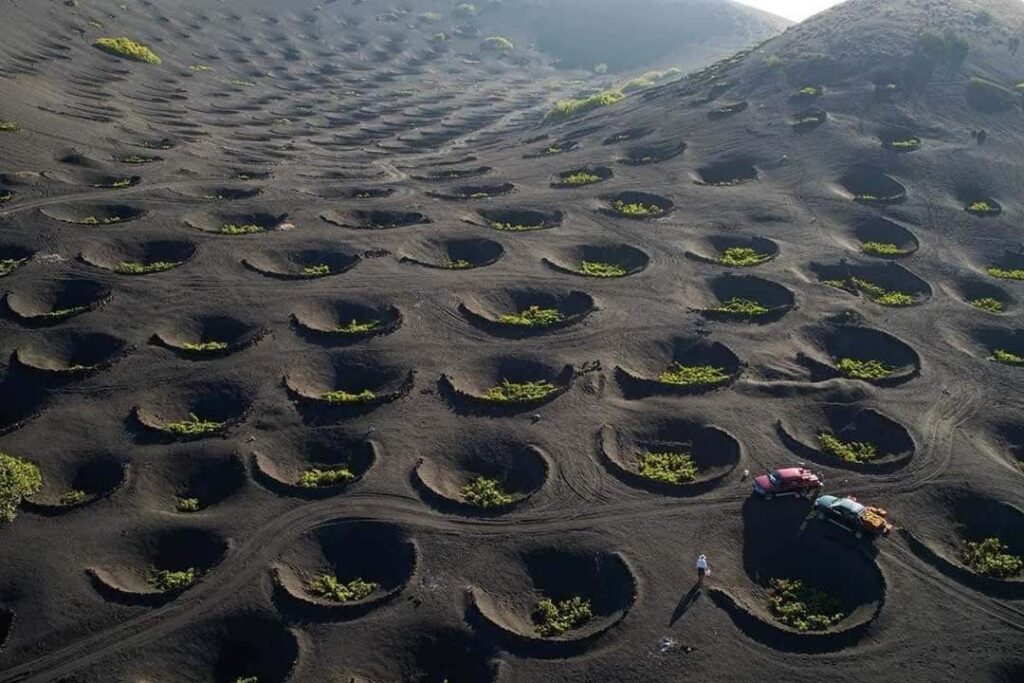
The turning point came in the 18th century, following the devastating six-year eruption of the Timanfaya Volcano in 1730. While many residents were forced to flee, those who remained discovered a hidden treasure – the volcanic ash, known as picón, possessed a remarkable ability to retain precious moisture. This seemingly barren soil became the foundation for a new agricultural chapter.

Lanzarote’s vineyards are a sight to behold. Unlike traditional sprawling fields, they exist in a network of strategically dug pits called hoyos. These pits, often surrounded by crescent-shaped, dry-stone walls called zocos, protect the delicate vines from the relentless trade winds. The volcanic picón, blanketing the surface, acts as a natural mulch, conserving moisture from scarce rainfall and morning dew. This ingenious system allows the vines to tap into underground water reserves, a testament to the island’s resourceful winemakers.
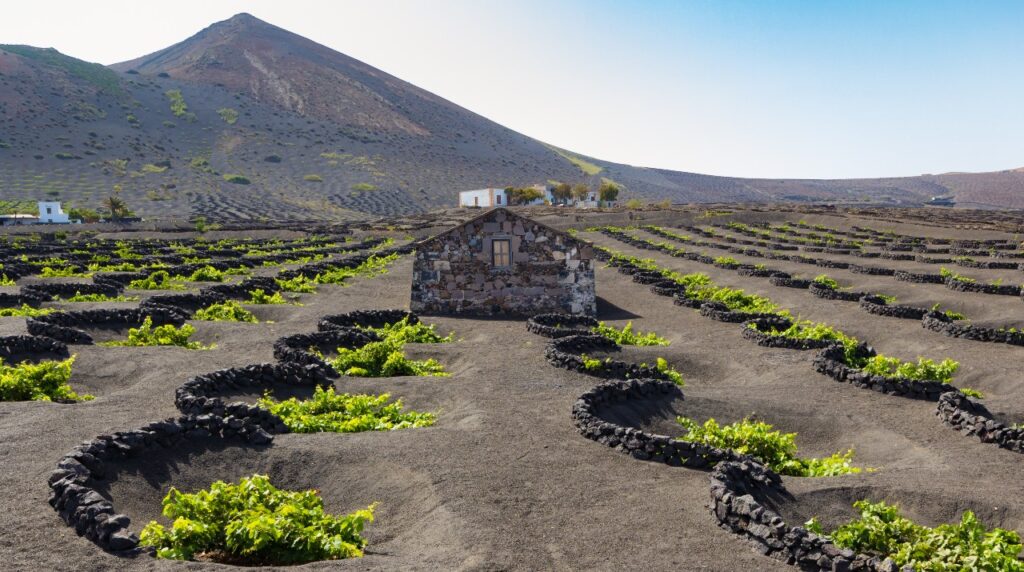
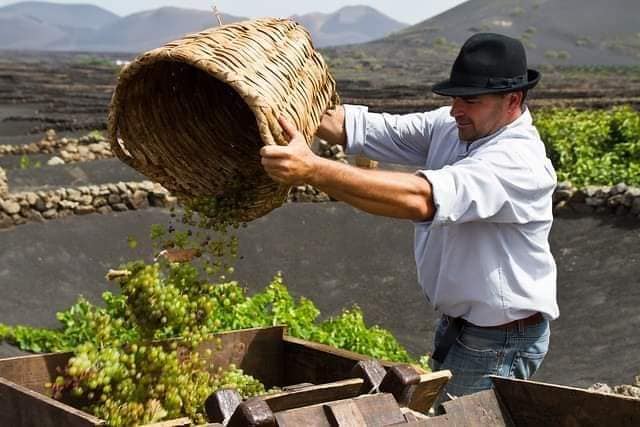
The unique volcanic soil not only sustains the vines but also imparts a distinct character to the wines. The resulting Lanzacote wines, predominantly white varietals made from the indigenous Malvasía grape, are known for their crisp acidity, pronounced minerality, and subtle hints of smoke and salinity – a reflection of the island’s fiery origins.
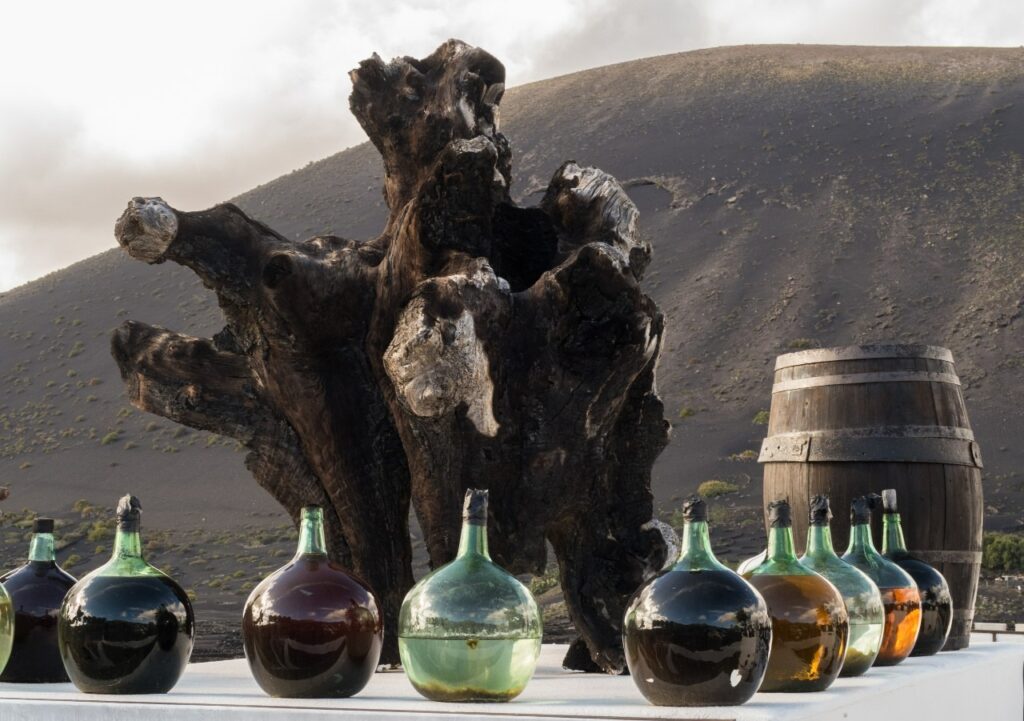
Lanzarote’s wine industry stands as a powerful symbol of human resilience and ingenuity. It’s a story of wresting bounty from a seemingly barren land, a testament to the unwavering spirit of its people, and a celebration of the unique flavors born from volcanic fire.

Leave a Reply